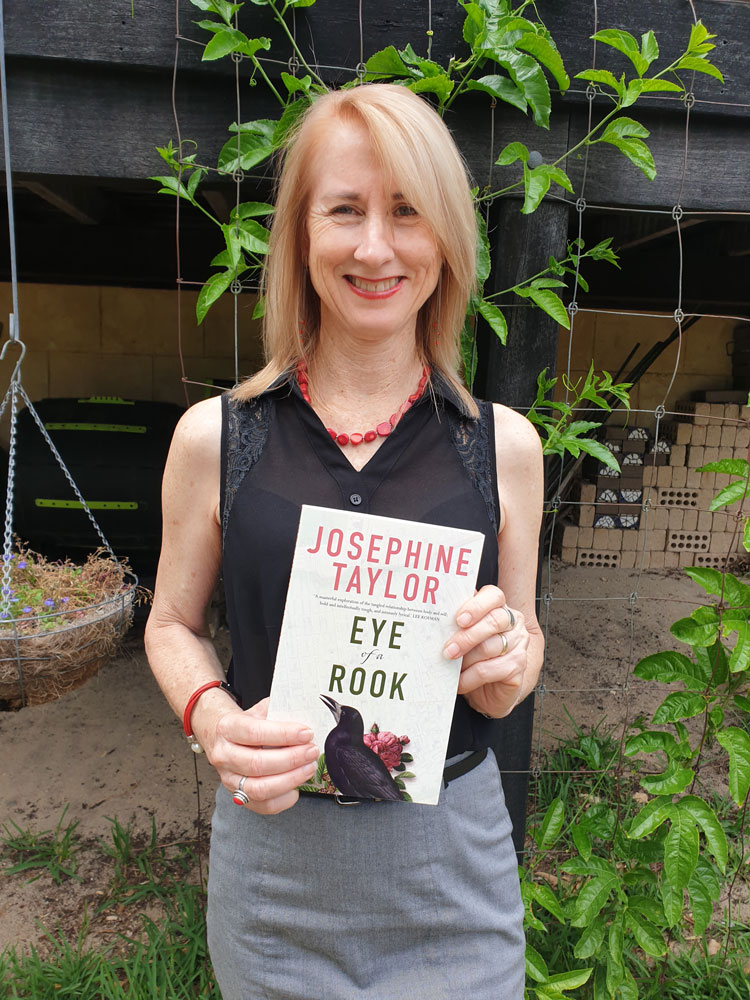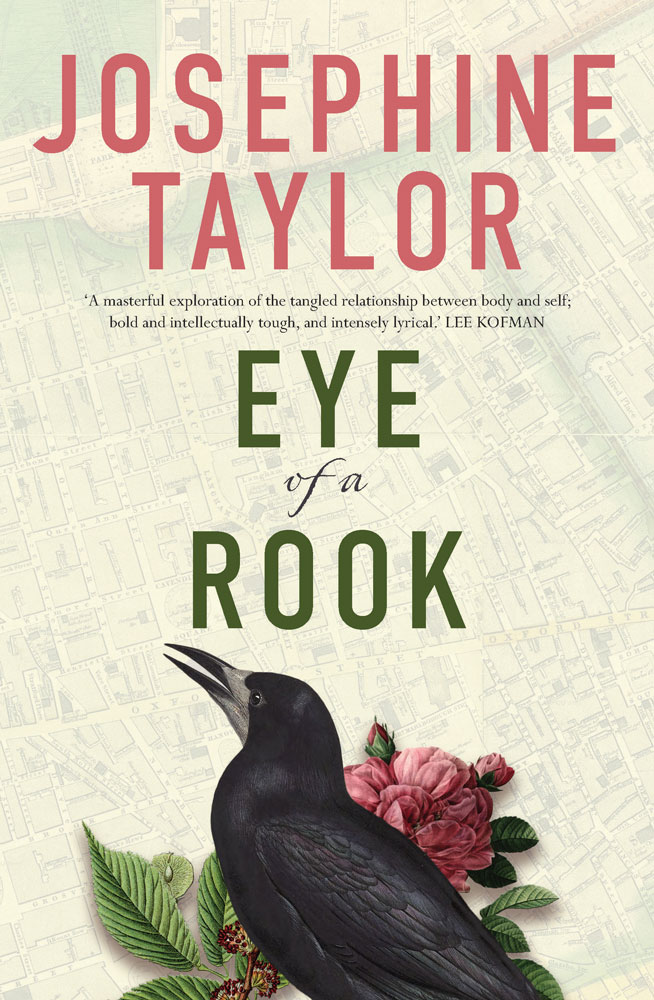An editor becomes an author
by Josephine Taylor
My debut novel, Eye of a Rook, was published in February by Fremantle Press, and I couldn’t be happier seeing it on bookshop shelves. It seems I am an author now, as well as an editor.
I came to editing late, studying and teaching editing, freelancing as an editor and taking up the position of Associate Editor at Westerly in my fifties, but I came to writing fiction even later. I finished my PhD in creative writing in 2011 and made initial attempts at finding publication for my award-winning thesis — a big unwieldy beast of an investigative memoir, titled Vulvodynia and Autoethnography — but publishers seemed flummoxed about where and how to place my genre-crossing work. It’s one of those kinds of failures that become, in retrospect, a gift, because it was this setback that prompted me to write fiction on the same topic.
I began Eye of a Rook in 2013, though then all I knew was that I was writing a short story where a Victorian man consults real-life surgeon Isaac Baker Brown about the inexplicable and private pain of his wife, Emily.
The story was titled That Hand and was published in the anthology Other Voices by Peter Cowan Writers Centre. By that point, Arthur, Alice, Emily and Duncan had taken over in two interweaving narratives set in Victorian England and contemporary Perth. Now I couldn’t stop. The story became a manuscript called Silk Purse, later titled The Rook, and finally Eye of a Rook.
Writers are often advised to keep their writing and editing processes separate: write first, edit later. I’m not a fan of dictums and have always just done what feels right. Editing comes naturally to me (like you all, no doubt, I’m always mentally correcting newspaper articles, billboards and menus), and it happens as I write.
Playing with sentences and scenes by shifting, editing and tweaking immerses me in them deeply. I get to know the characters and understand their complex motivations more profoundly. Editing as I go also gives me the confidence to continue; I gradually fall in love with what I am writing and what needs to happen next in the narrative comes to me in that state.
I also move backwards and forwards between electronic and hard copy, because I see and read differently in these two forms. Reading the work out loud from hard copy is especially important in creating rhythm and lyricism and in bringing flaws to the surface. It’s a time-consuming way to work but it is right for me.
Working as an editor has been a boon to my writing in other ways: I identify syntactical patterns and problems more naturally, and working through issues in grammar helps me see what is most important to the story at the sentence level; as I write, appropriate words spring from a broad background in language and literature. Being an editor helps me in big-picture stuff too, in forming a balance between narrative threads, and in creating tonal and character arcs.
All this must have helped, because when Georgia Richter at Fremantle Press rang to say they would like to publish my book, she also told me it didn’t need a structural edit. I can thank my mentor, Perth writer Susan Midalia, for this, but I can also thank my love of editing.

Josephine Taylor

